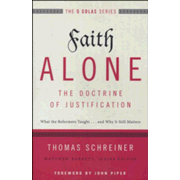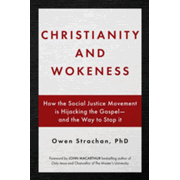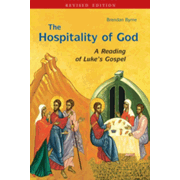OUR READING for the Eighth Sunday after Pentecost comes
from the Gospel According to Saint Luke. In this scripture reading, we hear a
parable story that our Lord used to challenge our worldly thinking about
security and treasure…
One of the multitude
said to him, "Teacher, bid my brother divide the inheritance with
me."
But he said to him, "Man, who made me a
judge or divider over you?" And he said to them, "Take heed, and
beware of all covetousness; for a man's life does not consist in the abundance of
his possessions." And he told them a parable, saying..,
"The land of a rich man brought forth
plentifully; and he thought to himself.., 'What shall I do, for I have nowhere
to store my crops?’ And he said, 'I will do this: I will pull down my barns, and
build larger ones; and there I will store all my grain and my goods. And I will
say to my soul, Soul, you have ample goods laid up for many years; take your
ease, eat, drink, be merry.'
But God said to him, 'Fool! This night your
soul is required of you; and the things you have prepared, whose will they
be?'
So is he who lays up treasure for himself, and
is not rich toward God."
(Luke
12:13-21)
Building a Judge?
Our Lord endured multiple contentions and assigned woe upon
both Pharisees and lawyers on the way to Jerusalem. In the previous chapter of
this gospel, we read that Jesus had contended with their hypocrisy. He had chided
them about how people of upper class offices offered public faces of
holiness; yet they frequently neglected doing justice and seeking the love of God. Now, in this
chapter he takes them to task again, for our Lord is asked to fairly settle a
financial matter.
 |
Faith Alone, The Doctrine of Justification: What the Reformers Taught...and Why It Still Matters By Thomas Schreiner |
We hear in the reading that a man wanted an issue settled between himself and his brother about
their family inheritance. Jesus’ answer, however, did not follow the man’s
desired course. The man seemed to not have heard all that had been previously taught
by Jesus, for hypocritically and judiciously he sought only that topic that was to fit his own
financial aims. Thus we know that typical
of many persons from sinful human society both past and present, he attempted to get
God to approve his plans to maintain and endorse his worldly pursuits. Here we see that he was testing
Jesus’ interpretation of the Hebrew’s Torah, simply in order to justify himself and his
treasury.
We can easily see
that this attitude concerning worldly things awarded the man a short dismissal
from Jesus. The occasion of this selfish approach, however, gave Jesus a moment of opportunity for
teaching. Jesus stated clearly that
his kingdom is not of this fallen world. Therefore the rewards of being
one of Christ's disciples are of another nature than simply material. Jesus taught us that
worldly covetousness is a sin constantly to be fought; for eternal comfort does not
depend on temporal wealth. To demonstrate his point, he told a parable to those
around him. Our Lord described the folly of a man who maneuvered for greater riches
while he lived, and beheld misery when judged before God.
You see, our Lord
taught that a poor trade-off was had when a farmer had no grateful regard of
God’s providence nor thought wisely concerning the uncertainties of life. The
man ignored the value of his soul and the importance of eternity. When he saw a
great crop growing, instead of thanking God… instead of being comforted in
being able to do more good, being self-centered he questioned in himself... “What
greater thing shall I do now?” His gluttonous egocentric nature caused him to
think of making no other use of his plenty than to gratify his appetite for more.
However, be careful
lest we gloat at his folly. We need note that the death of such a person is
miserable and terrible, for they are eternally cast out. Indeed, foolish are many.
Too often we see ourselves in the story. Wouldn't we sinful do the same were
it not for the Holy Spirit, for it is the Spirit that teaches us not
to pursue that which is temporal to the expense of the eternal gift.
 |
Christianity and Wokeness By Owen Strachan |
True Wealth?
We must note that this lesson is found in Luke alone.
Therefore we must also consider to some degree the attitude that our gospel author
had toward wealth. You see, it was thought in the wholistic concept of Hebrew thinking, that whatever
blessings you enjoy in worldly possessions shows that you also possess that same
countenance in soul and body. Basically, to profit in one meant to profit in the whole.
However, Luke relays for us to seek a different life. He was telling the Christians of his churches precisely what Jesus taught about worldly wealth. Luke recorded that if we truly value holiness, we have to be persons “set apart”. We are taught to adhere to a code that is not of this world and its values.
However, Luke relays for us to seek a different life. He was telling the Christians of his churches precisely what Jesus taught about worldly wealth. Luke recorded that if we truly value holiness, we have to be persons “set apart”. We are taught to adhere to a code that is not of this world and its values.
You see, as the Church, we are not to sinfully crave accumulating the luxuries of this life. Rather,
Luke exhorted the Christians of his day, that we should measure richness in belonging
to Christ as our Master, for only through him shall we please God.
Given this thought,
I view this parable related by Luke as a story received from Jesus concerning the
people of Israel… but it stands here as applied to all people of the infant Christian church. Consequently it also applies to us today!
You see, when originally
told, Jesus was on the way to the richness of temple in Jerusalem. The
interpretive message came across as a warning to the invested of Israel. Many though themselves as
“rich” and were invested in their deeds as crops, yet their days of woe were coming.
Decades later, this
message rang forth to persons worshiping within the communities of Luke. Jerusalem had fallen. We need
only to remember that this gospel was written down for them after the destruction of the temple
in Jerusalem… and the fall of the Hebrew fort at Masada. Knowing this subsequent history, therefore,
both we as individuals…. and the Church in its entirety, need to
apprehend this message clearly.
 |
The Hospitality of God: A Reading of Luke's Gospel By Brendan Byrne |
We need ask ourselves, “Are we, or have we been, individually
or cooperatively... counted among those who revel in worldly riches without giving proper thanks to God? Are we
those who attempt to build even larger churches, or more small churches... without paying proper homage to the One
who deliberately gave freely of himself for our salvation? Should we not do as he did?
Truly I believe that like
the ignorant farmer in this parable, we collectively and personally tend to forget our place
and our mission. We are but called to be working servants who wait for the eternal richness promised by God. We are to work diligently... sharing that grace which has been
revealed to us by the Spirit. Truly, if we possess a firm belief about the grace
of God's providence, that knowledge should guide us whenever we work in a world
full of poverty or peril.
Consequently, I say
to you now that though we often strive to acquire worldly status and goods, and take care to preserve our houses,
churches and more… we need to be most concerned to know that these things are
indeed not ours, but are temporal. Let us not trade our souls, or the souls of
others... for these fleeting things.
As the Christian church, let us be made ready
by the Holy Spirit for doing the most important evangelical work… and not hoard our
gifts. Let us share the gospel and do good works in thanksgiving… for as
scripture reveals, we do not know at what hour the thief shall come.





